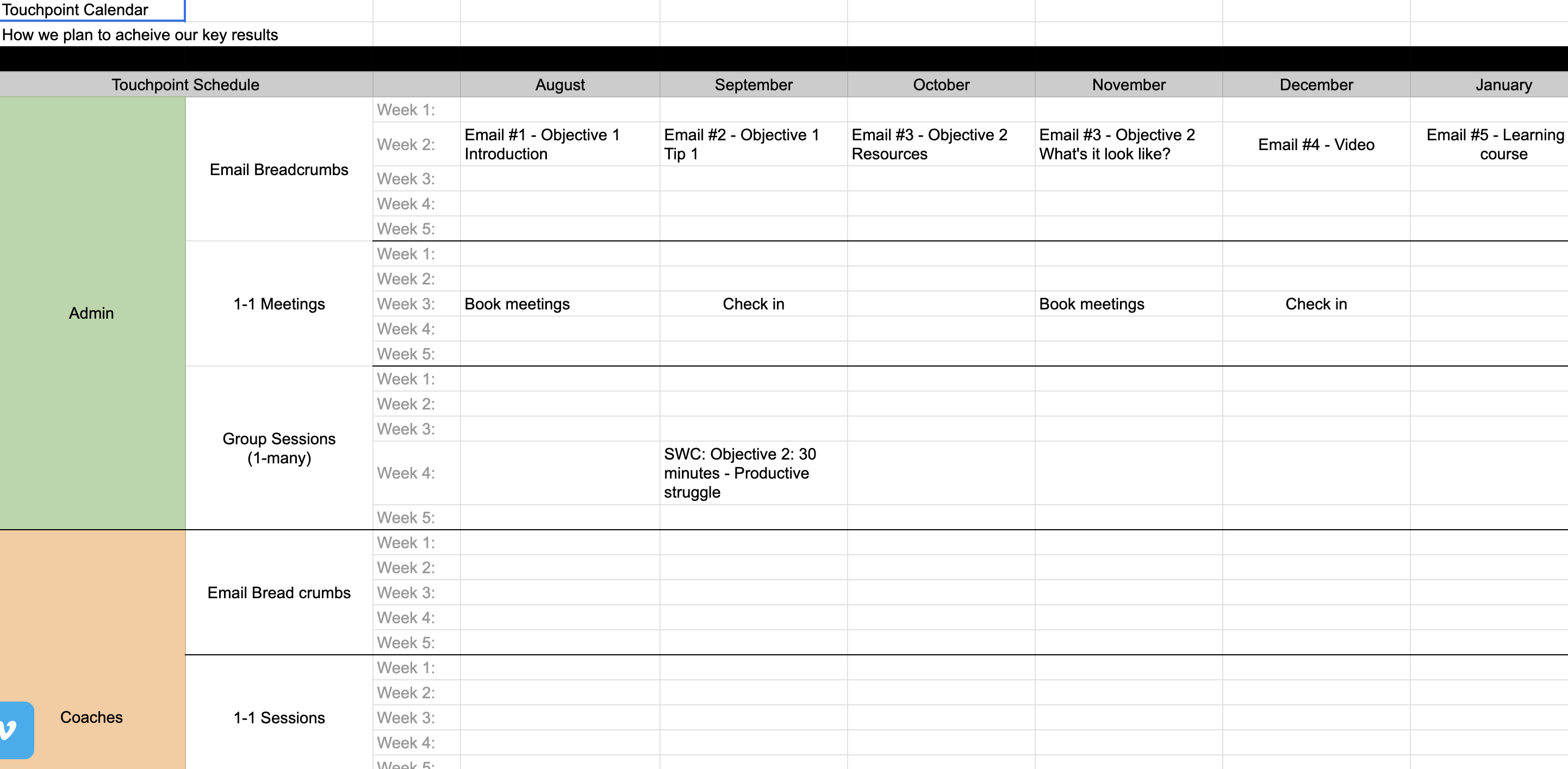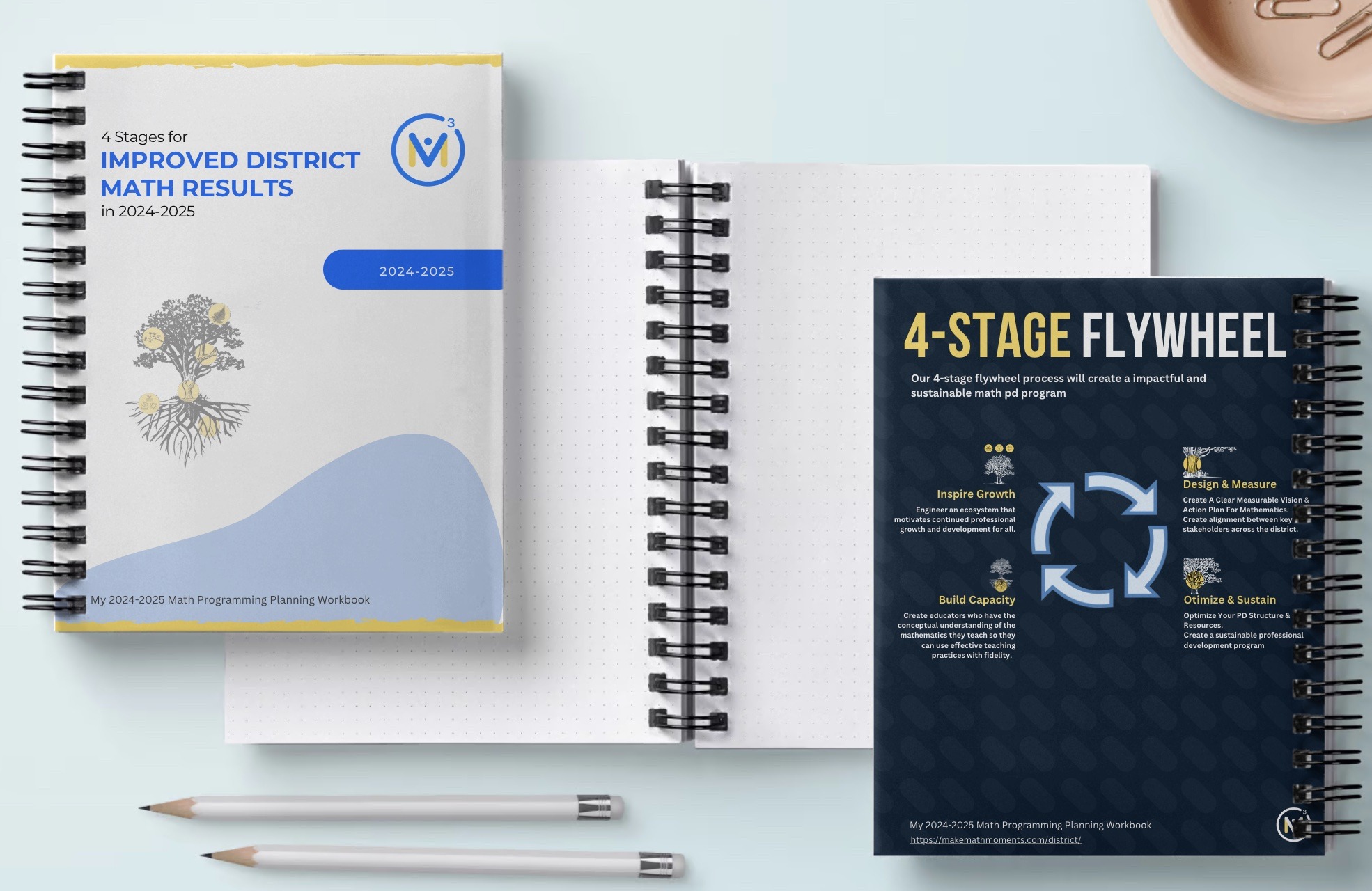Staying Aligned: Essential Strategies Toolkit for Math Coordinators and Coaches
In our fast-paced educational environment, staying focused and aligned with our initial goals can be a challenging yet vital aspect of our roles as math coordinators, coaches, or administrators. In this post, I want to share some insights and tools that have been instrumental in maintaining this focus throughout the school year.
The Challenge of Maintaining Focus
We’ve all experienced how new initiatives and unexpected changes can shift our focus and add to our already full plates. These shifts can sometimes sideline our original goals and objectives. This is not unusual, and it’s certainly not a failure on our part. It’s simply the nature of our job, where new priorities emerge, and existing ones evolve.
Setting Clear, Achievable Goals
At the start of the year, it’s crucial to establish clear objectives. I advocate for setting three primary goals to ensure that we don’t lose sight of what’s essential. These goals should align with effective pedagogy, and building capacity in the area of conceptual understanding for your educators. Keeping these focused goals will translate into student results overtime.
Introducing Two Key Tools
1. Action Plan Progress Tracking Sheet
This tool helps us map out our priorities and track our progress. Once you’ve decided on your top three goals, we break them down into key results and specific action items. This sheet becomes a visual representation of your roadmap for the year, helping you to stay on course and measure your achievements.
2. Touchpoint Schedule
This tool is about aligning your support levels with your goals. It involves planning how you’ll interact with and support your educators throughout the year, whether it’s through emails, PD sessions, PLCs, or direct coaching. This schedule ensures you’re consistently providing the necessary support to achieve our goals.

You can receive both of these tools by registering for our free training on the 4-Stages of Effective PD Planning in Mathematics.
Staying True to Our Vision
It’s not just about setting goals but also about constantly revisiting and reassessing them. This approach keeps us aligned with our original vision, even when new tasks or initiatives arise. We evaluate whether these new items support our key results and if they don’t, we consider postponing them or adding them to a secondary list. This prioritization ensures that our main objectives always receive the attention they deserve.
The Impact of Consistency (Why your teachers avoid PD)
Consistency in our focus is critical for teacher buy-in. When teachers see a consistent focus, they’re more likely to adapt and engage with new initiatives. Conversely, constantly shifting focuses can lead to skepticism and a lack of trust in the process.
Inviting Your Strategies
I’m always eager to learn about the different ways you might be tracking your goals and staying aligned with your vision. If you have any strategies or tools that have worked for you, please feel free to share them.
Together, let’s ensure we stay focused on what truly matters in math education, driving towards our goals with clarity and purpose.
Focus Your Math Professional Development On What Matters
Free Training + Planning Workbook

LESSONS TO MAKE MATH MOMENTS
Each lesson consists of:
Each Make Math Moments Problem Based Lesson consists of a Teacher Guide to lead you step-by-step through the planning process to ensure your lesson runs without a hitch!
Each Teacher Guide consists of:
- Intentionality of the lesson;
- A step-by-step walk through of each phase of the lesson;
- Visuals, animations, and videos unpacking big ideas, strategies, and models we intend to emerge during the lesson;
- Sample student approaches to assist in anticipating what your students might do;
- Resources and downloads including Keynote, Powerpoint, Media Files, and Teacher Guide printable PDF; and,
- Much more!
Each Make Math Moments Problem Based Lesson begins with a story, visual, video, or other method to Spark Curiosity through context.
Students will often Notice and Wonder before making an estimate to draw them in and invest in the problem.
After student voice has been heard and acknowledged, we will set students off on a Productive Struggle via a prompt related to the Spark context.
These prompts are given each lesson with the following conditions:
- No calculators are to be used; and,
- Students are to focus on how they can convince their math community that their solution is valid.
Students are left to engage in a productive struggle as the facilitator circulates to observe and engage in conversation as a means of assessing formatively.
The facilitator is instructed through the Teacher Guide on what specific strategies and models could be used to make connections and consolidate the learning from the lesson.
Often times, animations and walk through videos are provided in the Teacher Guide to assist with planning and delivering the consolidation.
A review image, video, or animation is provided as a conclusion to the task from the lesson.
While this might feel like a natural ending to the context students have been exploring, it is just the beginning as we look to leverage this context via extensions and additional lessons to dig deeper.
At the end of each lesson, consolidation prompts and/or extensions are crafted for students to purposefully practice and demonstrate their current understanding.
Facilitators are encouraged to collect these consolidation prompts as a means to engage in the assessment process and inform next moves for instruction.
In multi-day units of study, Math Talks are crafted to help build on the thinking from the previous day and build towards the next step in the developmental progression of the concept(s) we are exploring.
Each Math Talk is constructed as a string of related problems that build with intentionality to emerge specific big ideas, strategies, and mathematical models.
Make Math Moments Problem Based Lessons and Day 1 Teacher Guides are openly available for you to leverage and use with your students without becoming a Make Math Moments Academy Member.
Use our OPEN ACCESS multi-day problem based units!
Make Math Moments Problem Based Lessons and Day 1 Teacher Guides are openly available for you to leverage and use with your students without becoming a Make Math Moments Academy Member.
Partitive Division Resulting in a Fraction
Equivalence and Algebraic Substitution
Represent Categorical Data & Explore Mean
Downloadable resources including blackline masters, handouts, printable Tips Sheets, slide shows, and media files do require a Make Math Moments Academy Membership.
Use our OPEN ACCESS multi-day problem based units!




